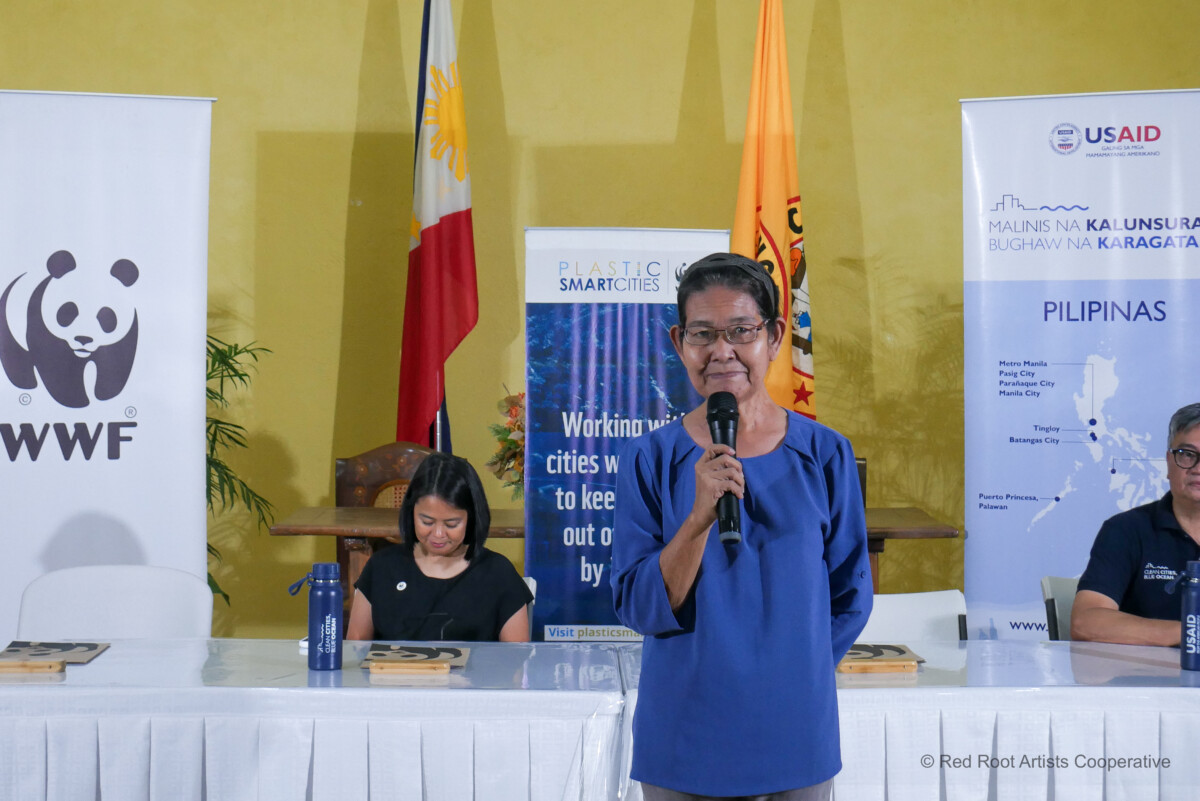Batangas City joins the Global Movement of Cities working towards Plastic Pollution

WWF-Philippines, Batangas City, and USAID sign a tripartite agreement to work towards addressing plastic pollution.
Batangas City joins the Plastic Smart Cities (PSC) network - a global movement of cities working towards addressing plastic pollution. By joining this project, Batangas City commits to integrate gender and socio-behavioral communications into their 10-year solid waste management plan.

Batangas City Joins PSC: A Bold Step to Combat Plastic Pollution, Inspiring Global Coastal Cities.
The World Wide Fund for Nature (WWF) Philippines held a signing ceremony in April with Batangas City Mayor Beverley Dimacuha-Mariño, Barangay Calicanto Chairwoman Wilma Martinez, WWF–Philippines Executive Director Katherine Custodio and United States Agency for International Development (USAID) Clean Cities, Blue Ocean (CCBO) Philippines Program Director Jose Angelito Palma.
Batangas City’s declaration to join PSC aims to serve as a catalyst for other cities and coastal areas worldwide to forge partnerships, implement innovative solutions, and take bold measures to combat plastic pollution.

Mayor Dimacuha-Mariño Highlights Strong Collaboration with USAID and WWF-Philippines in Environmental Initiatives.
Mayor Dimacuha-Mariño emphasized the longstanding partnership between the Batangas City government, USAID, and WWF-Philippines in implementing various environmental programs. "Basta magkakatuwang tayo, kakayanin ko (As long as we work together, we can succeed),” she said during the ceremony.


Barangay Calicanto in Batangas leads the charge against plastic pollution with innovative interventions.
The mayor also commended Barangay Calicanto, a seaside village in Batangas City, for serving as a pilot area for plastic pollution interventions. Before the signing ceremony, the barangay participated in a WWF-Philippines survey which found that plastic bottles were the most common type of plastic waste in the community.

WWF-Philippines and USAID assist Barangay Calicanto in establishing a Material Recovery Facility to curb plastic pollution.
WWF-Philippines and USAID are assisting Barangay Calicanto in establishing a materials recovery facility that will help reduce the accumulation of plastic bottles in the barangay as part of their 10-year solid waste management plan.
WWF-Philippines’ PSC project is working with USAID’s CCBO Program which aims to develop effective and sustainable solutions to stop plastic pollution with a focus on land-based interventions.
USAID’s role is to conduct research and analysis for a data-driven approach to solid waste management. PSC supports cities in varying Philippine landscapes (highly urbanized cities, coastal cities, islands and lowlands) to transition towards a circular economy model, where waste is minimized by reusing and recycling materials, including plastics. The project also facilitates knowledge exchange between participating cities and promotes the sharing of best practices and innovative solutions.
“Batangas City has been a champion of sustainability and engaging them in the Plastic Smart Cities global network is definitely an approach for showcasing best practices on solid waste management not just in the Philippines but in other countries as well,” says Czarina Constantino- Panopio, Project Manager of the Plastic Smart Cities project.
About WWF:
WWF is one of the world’s largest and most respected independent conservation organizations, with over 5 million supporters and a global network active in over 100 countries. WWF's mission is to stop the degradation of the Earth's natural environment and to build a future in which humans live in harmony with nature, by conserving the world's biological diversity, ensuring that the use of renewable natural resources is sustainable, and promoting the reduction of pollution and wasteful consumption.
WWF-Philippines has been successfully implementing various conservation projects to help protect some of the most biologically-significant ecosystems in Asia since its establishment as the 26th national organization of the WWF network in 1997.
